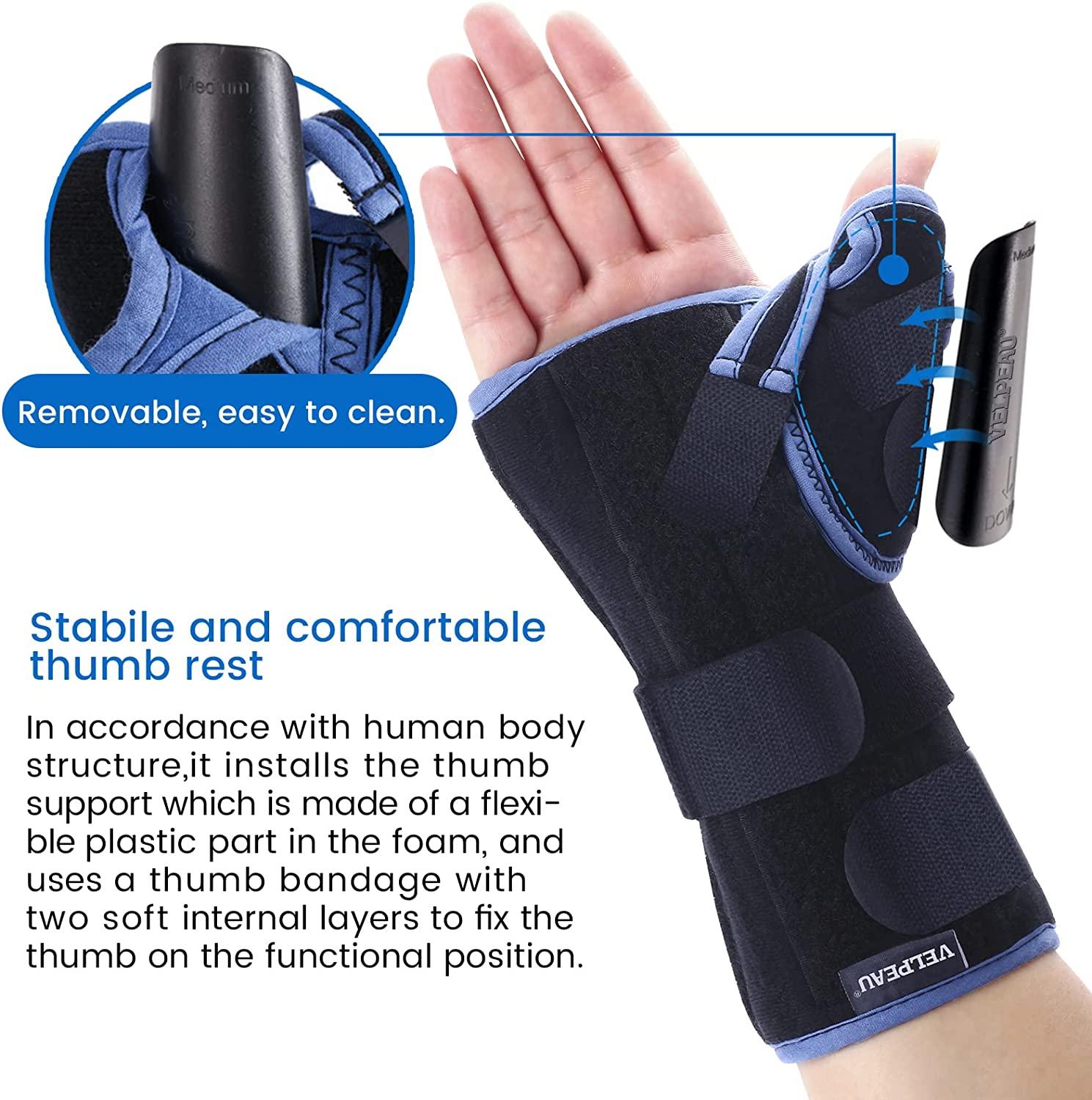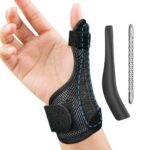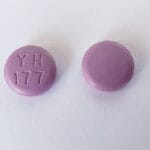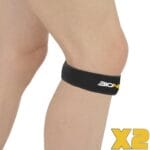Do you experience a nagging ache in your wrist, especially when using your thumb? Simple tasks like opening a jar or texting might become painful if you have De Quervain’s Syndrome. This comprehensive guide explores De Quervain’s, its causes, symptoms, and various treatment options, including different types of splints, braces, and other medical devices that can ease your discomfort. We’ll also address common questions like the use of TENS units and whether De Quervain’s is considered a disability. Empower yourself with knowledge to make informed decisions in consultation with your healthcare provider.
Understanding De Quervain’s Syndrome
De Quervain’s tenosynovitis is a painful condition affecting the tendons on the thumb side of your wrist. These tendons, which control thumb movement, become inflamed, causing discomfort and limited mobility. Common symptoms include pain near the base of the thumb, swelling, difficulty gripping or pinching, and a “sticking” sensation in the thumb.
Medical Devices and Treatment for De Quervain’s
Several De Quervain’s syndrome medical devices and treatments can provide relief. Let’s explore the options:
Splints and Braces: Providing Support and Rest
Splints and braces limit wrist and thumb movement, allowing inflamed tendons to rest and heal. Choosing the right type depends on your symptoms and lifestyle. Consult your doctor or a hand therapist for personalized recommendations.
- Thumb Spica Splints: These primarily immobilize the thumb, offering maximum support.
- Pros: Excellent thumb stabilization, reduces strain.
- Cons: Can be bulky, limiting some hand movements.
- Wrist Braces with Thumb Support: These stabilize both the wrist and thumb.
- Pros: Generally more comfortable than thumb spica splints, allow for some hand function.
- Cons: May not provide as much thumb immobilization.
Some popular options include the Velpeau Wrist Brace with Thumb Spica Splint, Dr.Welland Reversible Thumb & Wrist Stabilizer, and Dr. Frederick’s Original Waterproof Thumb & Wrist Brace.
Beyond Braces: Additional Treatments
- NSAIDs (Nonsteroidal Anti-inflammatory Drugs): Over-the-counter medications like ibuprofen and naproxen can reduce swelling and pain. They’re available as pills or topical creams.
- Corticosteroid Injections: For persistent pain, a corticosteroid injection into the tendon sheath can offer substantial relief. However, they are not a long-term solution and may have side effects.
- Hand Therapy: A hand therapist [https://www.lolaapp.com/] can guide you through exercises to restore mobility, strengthen your wrist and thumb, and reduce pain. Therapeutic modalities like ultrasound and iontophoresis may also be used.
Choosing the Right Device: A Personalized Approach
Selecting the ideal De Quervain’s syndrome medical device depends on your comfort, budget, and lifestyle. Consult with a healthcare professional for personalized advice.
| Feature | Thumb Spica Splint | Wrist Brace with Thumb Support |
|---|---|---|
| Thumb Support | Maximum | Moderate |
| Wrist Mobility | More Restricted | Less Restricted |
| Comfort | May feel bulky | Generally more comfortable |
| Activities | Limits fine motor skills | Allows for more hand function |
Finding the Best Support for De Quervain’s Tenosynovitis
Effective management of De Quervain’s often involves a combination of approaches:
- Bracing or Splinting: These devices limit movement, allowing tendons to heal. A thumb spica splint offers maximum support, while a wrist and thumb support brace allows for some movement.
- Rest: Modifying activities to avoid aggravating movements is crucial.
- Icing: Applying ice packs can provide relief.
- Over-the-Counter Pain Relievers: Ibuprofen or naproxen can help manage discomfort.
- Corticosteroid Injections: Your doctor might suggest these for persistent pain.
- Surgery: This is a last resort if other treatments are unsuccessful.
| Feature | Thumb Spica Splint | Wrist and Thumb Support Brace |
|---|---|---|
| Thumb Support | Immobilizes completely | Allows limited movement |
| Wrist Support | Full stabilization | Moderate stabilization |
Can a TENS Unit Help with De Quervain’s?
TENS units deliver mild electrical pulses that may offer temporary pain relief. They potentially disrupt pain signals and stimulate endorphin release. Correct pad placement, guided by a healthcare professional, is crucial. TENS therapy is most effective as part of a broader treatment plan.
| Treatment | Description | |
|---|---|---|
| Bracing | Immobilizes the thumb and wrist. | |
| Physical Therapy | Improves range of motion and strength. | |
| Cortisone Shots | Reduces inflammation through targeted injection. | |
| Surgery | Opens the tendon compartment to relieve pressure. |
Is De Quervain’s a Disability?
Whether De Quervain’s is considered a disability depends on its severity and impact on daily life. Mild cases may not qualify, while severe, persistent cases limiting hand and wrist use might.
Veterans with De Quervain’s may qualify for disability benefits under Diagnostic Code 5214. Non-veterans might qualify for long-term disability insurance if it prevents them from performing their job. Social Security Disability Insurance (SSDI) is a possibility for severe cases lasting 12+ months, preventing “substantial gainful activity.”
“In her February 2005 notice of disagreement, the Veteran asserts that de Quervain’s Syndrome in her right and left wrists has manifested in the form of difficulty performing activities such as carrying groceries, carrying books to class, lifting a full pot from the stove, and combing her hair.” This illustrates how everyday tasks can be challenging.
| Factor | Description |
|---|---|
| Severity | How much pain and limitation are experienced? |
| Daily Impact | Does it affect dressing, eating, writing, or driving? |
| Work Impact | Does it prevent job performance? |
If you’re experiencing ear discomfort, you might be interested in learning what side to sleep on with a ruptured eardrum [https://www.lolaapp.com/].
This information is for general knowledge and not medical or legal advice. Consult healthcare and legal professionals for personalized guidance.
- Mastering Leader in Spanish: The Complete Guide - April 19, 2025
- Uncovering Surprising Parallels: England Size Compared to US States - April 19, 2025
- Old Mexico Map: Border Shifts 1821-1857 - April 19, 2025
















